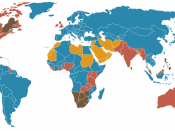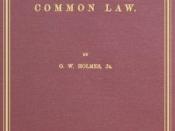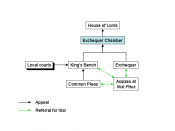Assignment: In no more than two to three pages, explain the utility of the Jamaican court system.
The Jamaican Common Law system of jurisprudence has been adopted from English Common Law which is based on the doctrine of judicial precedent, the principle of which the lower courts must follow the decisions of the higher courts, rather than on statutory laws. Such a system originates from the doctrine of stare decisis et non quieta mover meaning, "stand by what has been decided and do not unsettle the established". In order to obtain transparency, consistency, expediency and predictability within the law, this doctrine allows for court decisions to be heavily reliant on prior judicial pronouncements. Within the Common Law system, courts are bound to the precedents, where the issues and facts are essentially the same.
As previously mentioned, Common Law has no basis in statute and is established and developed through written opinions of judges delivered at the end of the trial.
These opinions are binding on future decisions of lower courts in the same jurisdiction. In accordance to the doctrine of judicial precedent, there are two types of precedents: binding and persuasive. For the former, this is a precedent from an earlier case which must be followed by a court of inferior (or in some cases the same) level even if the judge in the later case does not agree with the legal principle. In the case of the latter, these are legal principles contained in judgments which merely offer guidance. The judge may refer to such cases but need not base his decision so that his decision may differ from that case without having to distinguish the facts. The doctrine depends on a hierarchy of courts. Central to the doctrine is the idea that judges do not create law...


